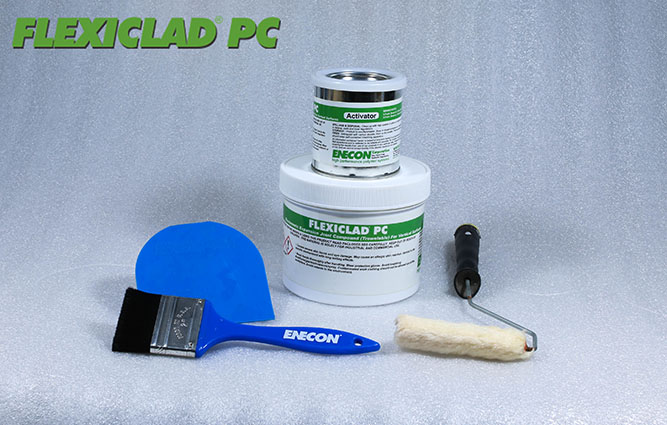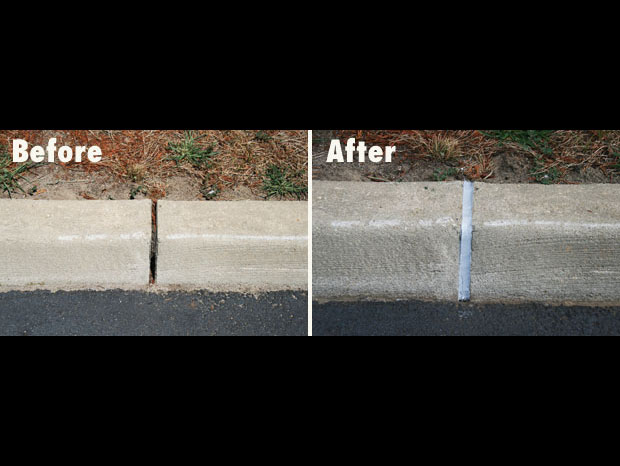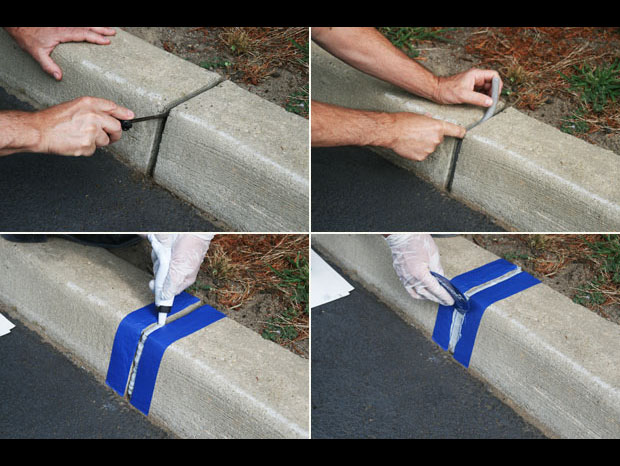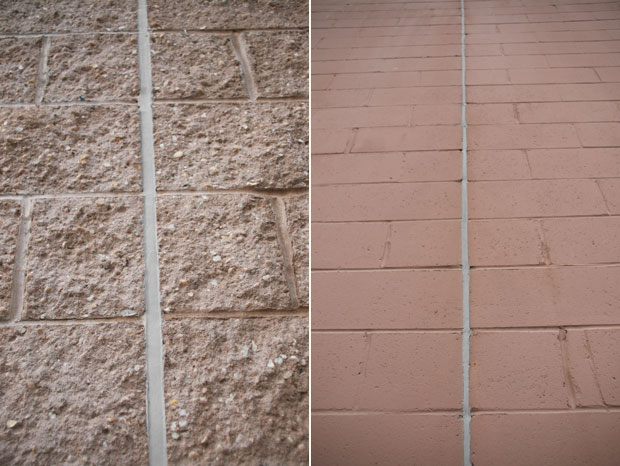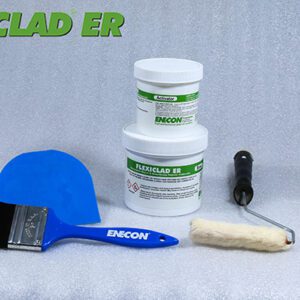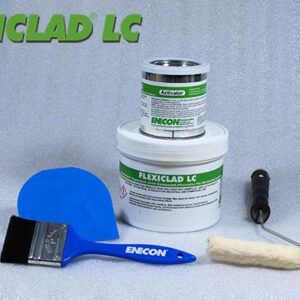-
Use for...
-
Secondary Containment Areas
-
Bulk Transfer Areas
-
Production Room Walls
-
Loading Dock Walls
-
Vertical Joints On Roof Decks
-
Wide Joint Seals
ELASTOMERIC EXPANSION JOINT COMPOUND FOR VERTICAL SURFACES
FLEXICLAD PC® is a two component, 100% solids, trowelable elastomeric polymer composite that has been specifically formulated to seal vertical expansion joints in concrete as well as other cementitious / mineral substrates including tiles, brick, slate, stone, etc. It also bonds very well to metal and wood surfaces.
FLEXICLAD PC requires no primer, bonds to most rigid substrates and cures at ambient temperatures. It has been specifically designed to resist countless freeze / thaw cycles – stretching to well over 600%. It is excellent for sealing between dissimilar materials which may expand and contract at different rates. It also has very good chemical resistance making it the ideal choice for use in secondary containment areas as well as walls in production areas, loading docks, etc.
FLEXICLAD PC incorporates revolutionary polyaspartic technology for sealing expansion joints where durability and flexibility are uniquely important
| Volume capacity / 0.5 kg : 25.7 in3 / 438 cc |
|---|
| Mixed density : 0.061 lbs / in3 (1.69 gm / cc) |
| Coverage rate / 0.5kg : 0.06 m2 @ 6 mm |
| Shelf life :Two years |
| Volume Solids : 100% |
| Mixing ratio Base / Activator / Aggregate (volume) 4 / 1 |
| Mixing ratio Base / Activator (weight) : 4 /1 |
| Working Life 25ºC : 60 min |
| Initial Set 25ºC : 12 h |
| Maximum Overcoating 25ºC : 24 h |
| Full Cure : 72 h |
| Hardness – Shore D |
|---|
| (ASTM D-1002) : 1000psi (70 kg/cm2) |
| (ASTM D-1002) : 850psi (60 kg/cm2) |
| (ASTM D-1002) : 900psi (63 kg/cm2) |
| (ASTM D-1002) : 950 psi (67 kg/cm2) |
| (ASTM D-2240) : 50 |
| (ASTM D1876) > 30 (pli) pound / inch (> 5.3 kN/m) |
| (ASTM G32) Frequently: 20 KHZ; amplitude: 0.001 inches (0.0254mm) : 240 micron (0.24 mm) CMDE* |
| (ASTM G32) Frequently: 20 KHZ; amplitude: 0.001 inches (0.0254mm) : 100 micron (0.1 mm) CMDE* |
| (ASTM G32) Frequently: 20 KHZ; amplitude: 0.001 inches (0.0254mm) : 60 micron (0.06 mm) CMDE* |
| * CMDE: Cumulative Mean Depth of Erosion |
| Acetic acid 0-10% —– NR |
|---|
| Ammonium hydroxide (amoniac) (0-10%) —– G |
| Ethanol —– NR |
| Methanol —– NR |
| Mineral Oil —– G |
| Phosphoric acid (0-10%) —– G |
| Sodium hydroxide (Natri Hidroxit) —– EX |
| Toluen (Metylbenzen) —– NR |
| Xylene —– NR |
| Oxalic acid —– G |
| Hexane —– G |
| EX – Suitable for most applications including immersion |
| G – Suitable for intermittent contact splashes etc |
| NR – Not Recommended |
Technical data
Physical properties
Chemical resistance

